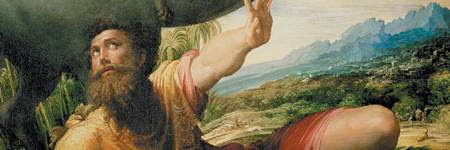 |
|
Martin Filler
Besides being an experimental farmer, prolific journalist, crusading publisher, military health care reformer, and insightful social critic, Frederick Law Olmsted was also the greatest advocate and impresario of the public realm this country has ever produced.
|
| |

ADVERTISEMENT
|
|
|
| |
 |
|
David Cole
Democrats received more than half of House votes in Arizona, Michigan, Pennsylvania, and Wisconsin in 2012, and did not get a majority of House seats in any of them. In what sense can such outcomes be called democratic?
|
| |
 |
|
Tim Parks
Now widely considered a masterpiece, If This Is a Man was turned down by Turin’s main publishing house, Einaudi. It was also rejected by five other publishers. Why?
|
|
|
| |

ADVERTISEMENT
|
| |
 |
|
G.W. Bowersock
He was a Jew from Tarsus, in what is today southeastern Turkey, and a Roman citizen. His Jewish name was Saul, but Paul his Roman one. He made his way from Tarsus to Palestine, where he became a virulent opponent of the growing movement that Jesus had launched.
|
|
|
| |
 |
|
Ahmed Rashid
Obama’s plan will not end the acute economic and political paralysis of the leadership in Kabul, which has already caused tens of thousands of Afghans to flee to Europe, or the steady erosion of support for President Ghani.
|
| |
 |
|
Martin Filler
The thrilling exhibition “Berlin Metropolis: 1918–1933,” a heady mix of painting, collage, architecture, photography, film, graphic design, and fashion, vividly evokes the creative maelstrom of the Weimar Republic.
|
|
|
|

